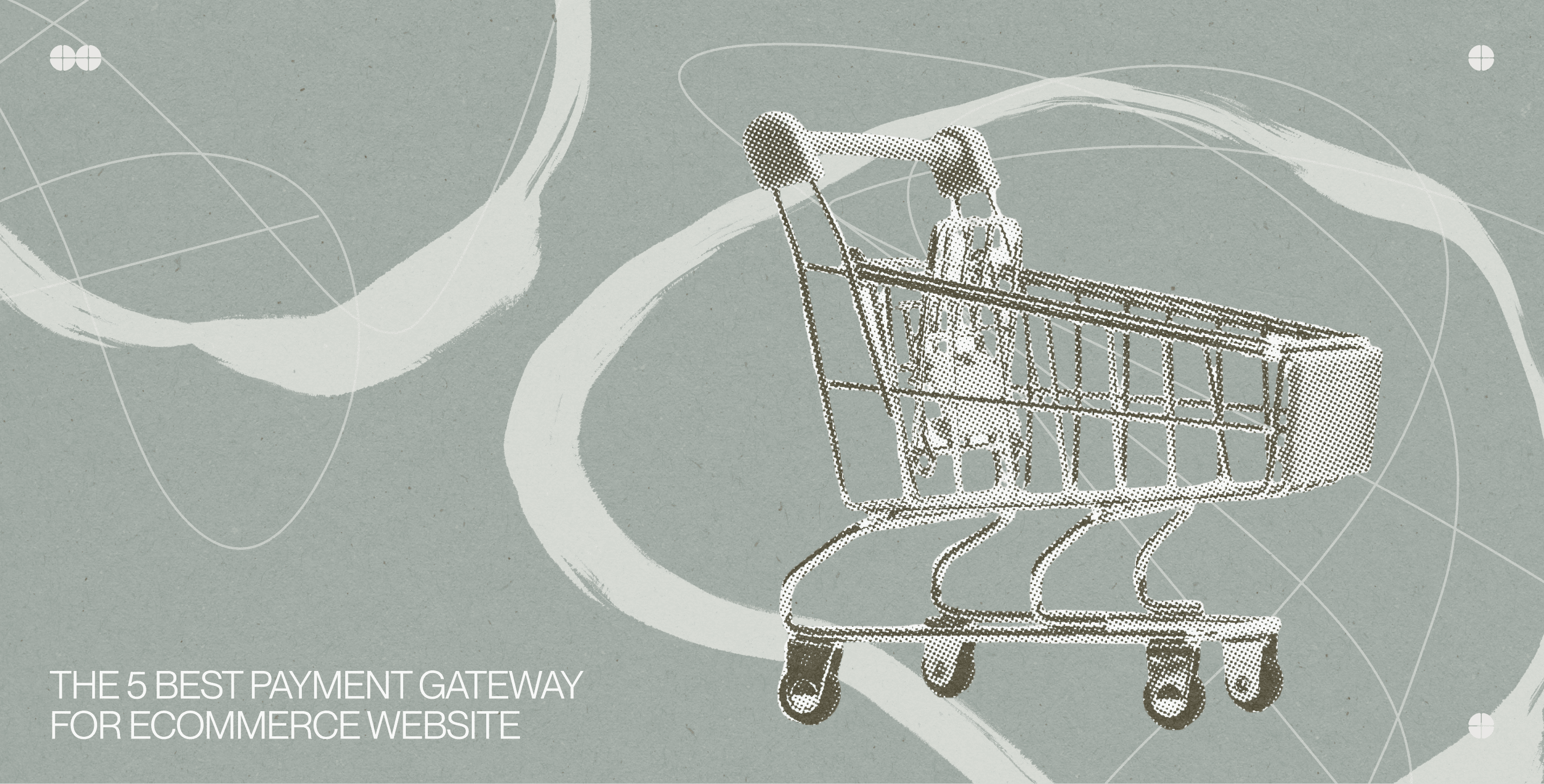Outline:
The ecommerce industry has experienced a rapid transformation, with online shopping becoming the preferred choice for millions worldwide. But while having a sleek, well-designed store is essential, the real game-changer lies in how efficiently payments are processed. A seamless checkout experience can make or break a sale, and this is where selecting the right payment gateway for ecommerce website becomes critical.
A payment gateway in ecommerce acts as a bridge between your online store and the financial institutions that process payments. It securely authorizes transactions, ensuring that your customers can pay using their preferred method—whether it’s a credit card, digital wallet, or even cryptocurrency. The right ecommerce payment gateway can drastically improve your conversion rates by providing a fast, secure, and hassle-free payment experience.
What to Look for in a Payment Gateway?
Before diving into the best options, it’s crucial to understand what makes a great payment gateway for ecommerce Website. Not all ecommerce payment gateway solutions are created equal—each comes with its own set of features, fees, and compatibility requirements. Selecting the wrong payment gateway in ecommerce can lead to higher costs, lower conversion rates, and frustrated customers.
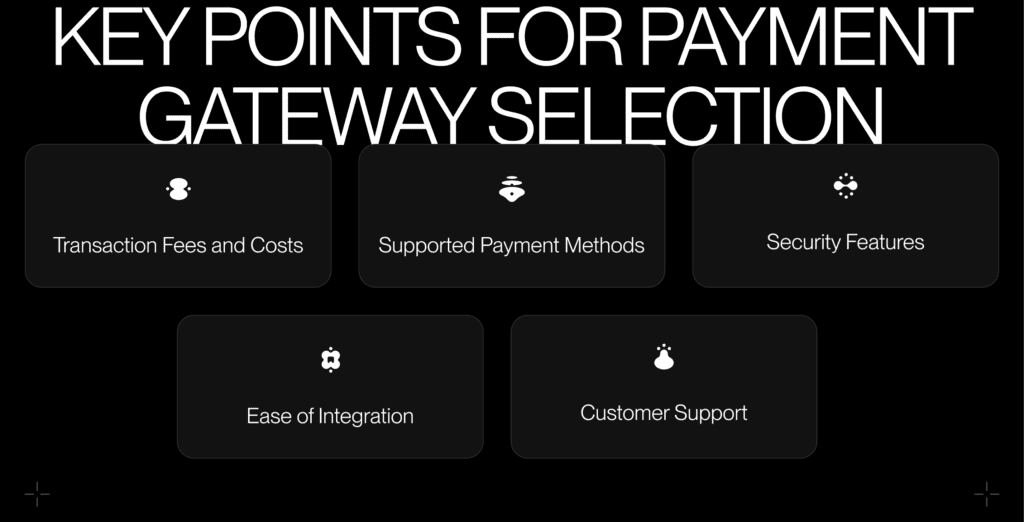
01 Security & Compliance: Protecting Transactions and Customer Data
In ecommerce, security is non-negotiable. A robust ecommerce payment gateway should comply with PCI DSS regulations. This ensures that all transactions are encrypted and protected from fraud.
Essential security features to look for:
- End-to-end encryption: Ensures sensitive data is never exposed.
- Tokenization: Replaces card details with unique tokens for added protection.
- Fraud detection tools: AI-driven security to detect and block suspicious transactions.
- 3D Secure Authentication: An extra layer of security for online card transactions.
02 Transaction Fees & Hidden Costs: Avoiding Profit Losses
Every payment gateway in ecommerce comes with a cost. Whether it’s a flat fee per transaction, a percentage of sales, or additional service charges, these costs can significantly affect your bottom line.
Key pricing factors to evaluate:
- Transaction fees: Typically range from 2.5% to 3.5% + a fixed charge per transaction.
- Monthly subscription fees: Some providers charge a flat monthly fee in exchange for lower per-transaction rates.
- Chargeback fees: If a customer disputes a transaction, you may be charged an extra $15–$25 per case.
- Currency conversion fees: If you sell internationally, be aware of extra charges for cross-border transactions.
- Early termination or setup fees: Some providers lock you into long-term contracts with penalties for cancellation.
Pro Tip: Calculate the projected cost of different ecommerce payment gateway options based on your average order value and monthly transaction volume. This helps you identify the most cost-effective solution.
03 Integration & Compatibility: Seamless Setup with Your Ecommerce Platform
Your payment gateway in ecommerce must integrate flawlessly with your store’s backend. Whether you’re using Shopify, WooCommerce, Magento, BigCommerce, or a custom-built website, the integration process should be straightforward.
Integration features:
- Pre-built plugins: Many gateways offer plug-and-play solutions for major ecommerce platforms.
- API access: Advanced users may need developer-friendly APIs for deeper customization.
- Mobile-friendly payments: Ensure smooth transactions on mobile devices and apps.
- Subscription & recurring payments: If you offer memberships or subscription-based products, check for built-in recurring billing support.
04 User Experience & Checkout Flow: Reducing Abandoned Carts
A clunky checkout experience is one of the biggest reasons for cart abandonment. The ecommerce payment gateway you choose should offer a smooth, intuitive, and distraction-free checkout process.
Vital factors for a frictionless checkout:
- One-click payments: Returning customers should be able to save payment details for faster checkouts.
- Guest checkout option: Don’t force users to create an account—this often leads to abandoned carts.
- Local & alternative payment methods: Offer digital wallets like Apple Pay, Google Pay, PayPal, or Buy Now, Pay Later options.
- Minimal redirects: Some gateways redirect users to external pages, which can lower trust and cause drop-offs.
05 Global Reach & Multi-Currency Support: Selling to International Customers
If you plan to sell beyond your home country, you need an ecommerce payment gateway that supports multiple currencies and international payments.
Features for global transactions:
- Supports local currencies: Helps avoid conversion fees and makes checkout smoother.
- Multi-language checkout pages: Enhances the buying experience for global customers.
- Compliance with regional regulations: Payment gateways must comply with GDPR, PSD2, and other local laws.
- Geolocation-based payment options: Automatically suggests region-specific payment methods based on the shopper’s location.
06 Customer Support & Reliability: What Happens When Something Goes Wrong?
Even the best payment gateway in ecommerce can run into technical issues, disputes, or downtime. When this happens, you need fast and efficient customer support.
Key factors in customer support:
- 24/7 availability: Payments happen around the clock—your support should too.
- Live chat, phone, and email support: Multiple channels for instant issue resolution.
- Comprehensive knowledge base: Self-help resources, FAQs, and troubleshooting guides.
- Guaranteed uptime: Look for a provider with at least 99.9% uptime to avoid disruptions.
A perfect payment gateway for ecommerce website doesn’t exist—it depends on your business model, target audience, and sales volume.
Before choosing, ask yourself:
Are transaction fees manageable for my sales volume?
Does it integrate smoothly with my ecommerce platform?
Does it support my customers’ preferred payment methods?
Is it secure, reliable, and compliant with regulations?
Stripe – The Developer’s Choice for Customization and Flexibility
Stripe has become one of the most preferred ecommerce payment gateway providers due to its developer-friendly API and seamless integration. Businesses looking for a highly customizable checkout experience often choose Stripe because it offers the freedom to build a payment system tailored to specific needs.
Unlike many plug-and-play solutions, Stripe requires some level of technical expertise, which can be a drawback for businesses without a development team. However, for those willing to invest in customization, it provides unmatched flexibility. Another major advantage is Stripe’s ability to process payments in over 135 currencies, making it ideal for businesses with international customers.
On the downside, Stripe has a high chargeback fee and longer settlement times for new merchants, which can be challenging for small businesses needing quick access to funds.
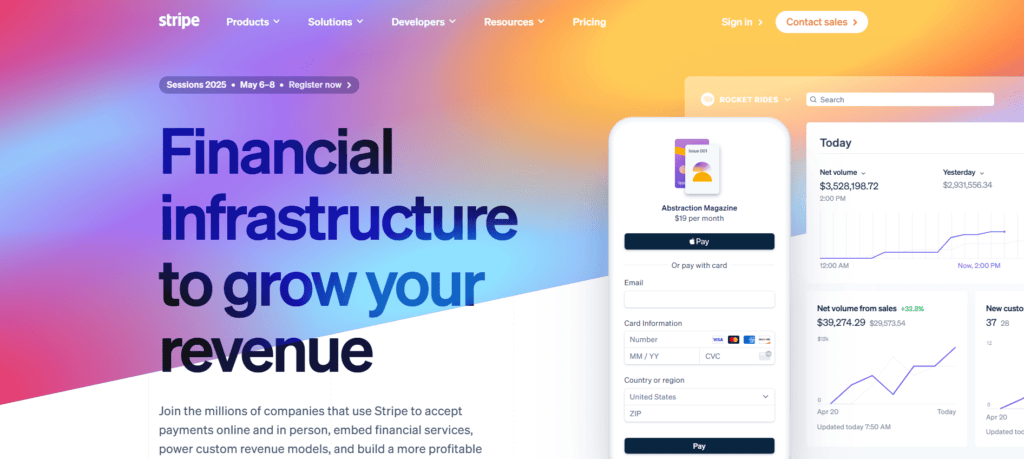
PayPal – The Power of Brand Recognition and Simplicity
PayPal is one of the most recognized payment gateway in ecommerce, offering an easy-to-use solution for both businesses and customers. Trust is a key factor in online payments, and PayPal’s established reputation helps increase conversion rates, particularly for small businesses that need to build customer confidence.
One of PayPal’s strongest features is its One-Touch checkout, which allows returning customers to complete purchases without entering their payment details again. Additionally, businesses can take advantage of PayPal Credit and Buy Now, Pay Later options, which can encourage higher-value purchases.
However, PayPal’s transaction fees are slightly higher than those of some competitors, which can become costly for high-volume merchants. Additionally, account freezes and withdrawal delays can occur if transactions are flagged for review, making cash flow unpredictable.
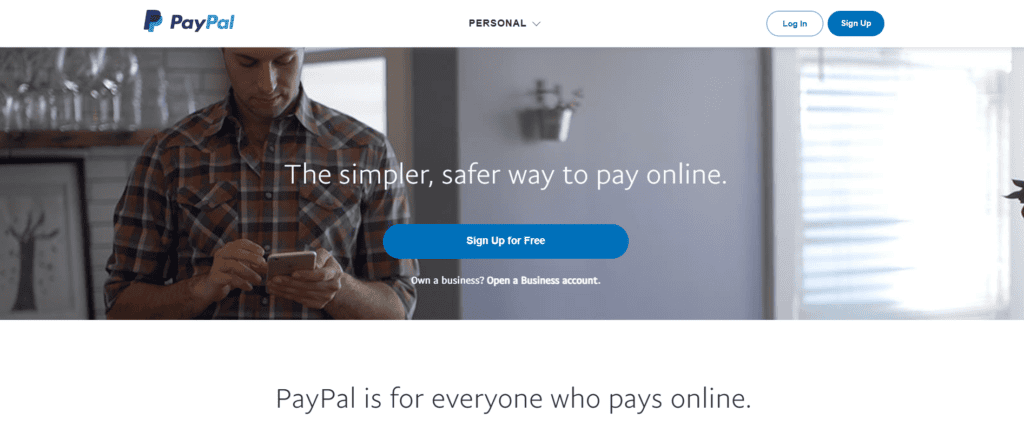
Square – A Versatile Solution for Both Online and In-Person Sales
For businesses that sell both online and in physical stores, Square is one of the best ecommerce payment gateway options available. It offers seamless omnichannel integration, meaning businesses can accept payments through an online store, a mobile app, or a physical POS system—all under the same ecosystem.
One major advantage is that Square provides a free online store builder, making it easy for businesses to launch an ecommerce site without additional software. Its pricing model is straightforward, with no monthly fees and a flat-rate per-transaction pricing system.
However, Square is not as widely supported internationally as Stripe or PayPal. It is also not ideal for high-risk industries, as its security policies sometimes result in account holds or transaction disputes. While it provides excellent integration for small businesses, it may lack the advanced customization options needed for enterprise-level ecommerce stores.
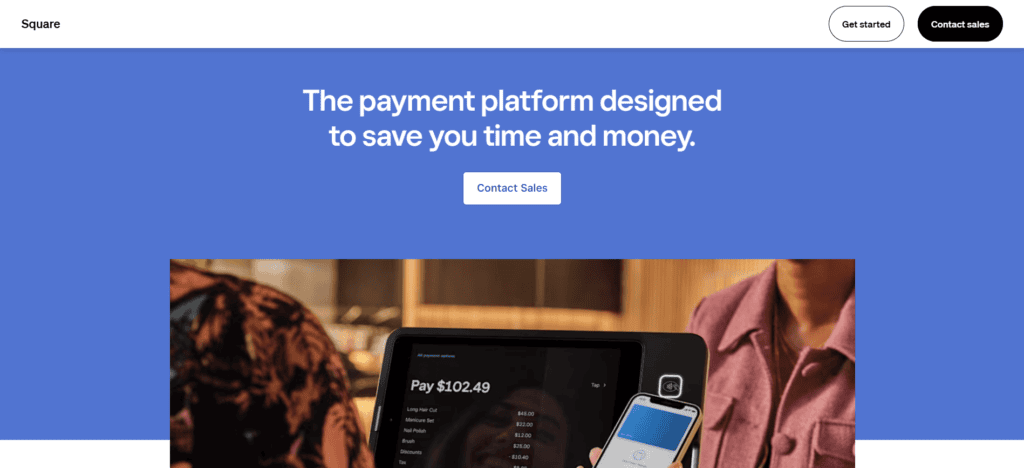
Authorize.net – Built for Security and Recurring Payments
As one of the most established payment gateway in ecommerce, Authorize.net is often chosen by businesses that prioritize security and reliability. Its advanced fraud detection tools and PCI DSS Level 1 compliance ensure that transactions are processed with maximum protection.
One of its standout features is recurring billing, making it a great option for subscription-based businesses. It also supports a variety of payment methods, including credit cards, eChecks, and digital wallets like Apple Pay and PayPal.
Despite these strengths, Authorize.net is not as beginner-friendly as some of its competitors. It comes with a monthly fee, which can be a downside for small businesses processing low volumes of transactions. Additionally, setting up an account requires more effort compared to other plug-and-play solutions.
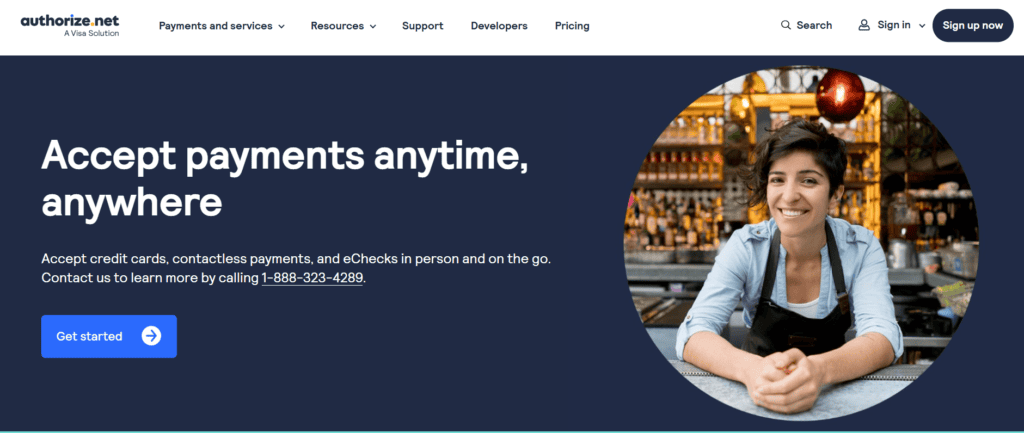
Adyen – The Go-To Choice for Global Enterprises
Adyen is a preferred ecommerce payment gateway for large-scale businesses and international brands. Companies like Uber, eBay, and Spotify use Adyen to process global payments, thanks to its ability to support over 250 payment methods and 150 currencies.
What makes Adyen unique is its AI-driven fraud prevention system, which continuously learns and adapts to prevent chargebacks and fraudulent transactions. It also provides a multi-channel payment ecosystem, making it possible for businesses to accept payments across different platforms, from ecommerce sites to mobile apps and POS systems.
However, Adyen’s pricing structure is not ideal for small businesses. Since it uses a custom pricing model, companies with low transaction volumes may not find it as cost-effective as flat-rate options. Additionally, the approval process for using Adyen can take longer than with most other payment gateways.
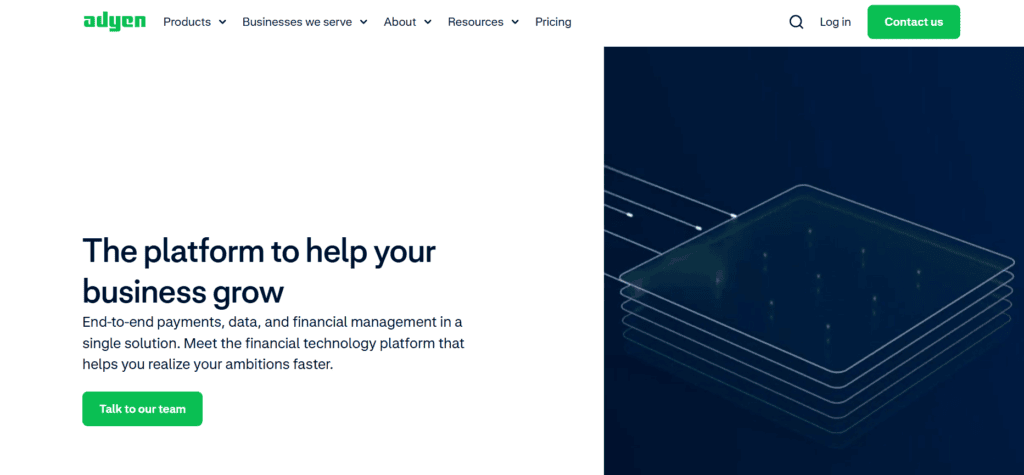
Comparison of the Best Payment Gateways for Ecommerce
Each of these payment gateway in ecommerce solutions has its own advantages and is best suited for specific business models.
- Stripe is perfect for businesses needing full control over payment customization and those selling internationally.
- PayPal is the best option for businesses wanting a trusted brand name and a plug-and-play checkout solution.
- Square is ideal for small businesses and those operating both online and in-person.
- Authorize.net is the top choice for businesses needing recurring billing and extra security measures.
- Adyen is the best fit for large enterprises looking for a global payment gateway with advanced fraud protection.
The right ecommerce payment gateway depends on factors like business size, international sales, subscription needs, and security concerns. Up next, we’ll dive into how to choose the best payment gateway based on your business needs.
How to Choose the Best Payment Gateway for Your Ecommerce Business
Selecting the right payment gateway for ecommerce website is not just about finding the most popular provider—it’s about identifying the solution that aligns with your business model, sales volume, customer preferences, and growth plans. A poorly chosen ecommerce payment gateway can lead to high processing fees, abandoned carts, and integration headaches.
Here’s a step-by-step guide to choosing the best payment gateway in ecommerce for your business.
1. Understand Your Business Needs and Growth Plans
Before evaluating different ecommerce payment gateway options, define your business structure and long-term goals. Consider the following questions:
- Are you a small business, an enterprise, or a startup looking to scale?
- Do you primarily sell locally, or do you have an international customer base?
- Will you need a payment gateway that supports recurring billing for subscriptions?
- How much customization do you need for checkout experiences?
For example, if you’re an enterprise business handling international sales, a provider like Adyen or Stripe would be the best fit due to their global reach and multi-currency support. However, if you’re running a small business or a solopreneur venture, solutions like PayPal or Square might be more practical due to their simplicity and ease of use.
2. Evaluate Transaction Fees and Cost Structures
One of the biggest mistakes businesses make is underestimating payment processing costs. A payment gateway in ecommerce typically charges:
- A percentage-based fee on each transaction (e.g., 2.9% + $0.30 per transaction).
- Monthly fees for premium services.
- Chargeback fees (usually $15–$25 per disputed transaction).
- Currency conversion fees for international payments.
- Additional costs for fraud detection, recurring billing, or custom checkout features.
If your ecommerce store operates on high transaction volumes, even small differences in fees can have a significant impact on your revenue. Stripe and Adyen, for instance, offer competitive rates for businesses handling large-scale transactions, whereas PayPal’s fees may add up quickly for high-volume merchants.
For businesses operating on tight margins, platforms with transparent flat-rate pricing, such as Square, might be more cost-effective.
3. Prioritize Security and Compliance
Security should never be compromised when choosing an ecommerce payment gateway. Customers want to know their payment details are safe, and non-compliance with industry standards can result in legal risks and potential data breaches.
Look for the following security features:
- PCI DSS compliance.
- SSL encryption to protect sensitive customer data.
- AI-driven fraud detection to minimize chargebacks and fraudulent transactions.
- 3D Secure authentication for additional payment verification.
If security is a top priority, Authorize.net offers some of the most robust fraud protection tools, making it ideal for businesses dealing with high-risk transactions.
4. Consider Ease of Integration with Your Ecommerce Platform
The best payment gateway in ecommerce should seamlessly integrate with your ecommerce platform, whether you’re using:
- Shopify, WooCommerce, Magento, BigCommerce, or Wix.
- A custom-built website that requires API integration.
- Mobile apps that need an optimized checkout experience.
Stripe and PayPal offer pre-built plugins for most major ecommerce platforms, making them easy to set up without technical knowledge. Adyen and Authorize.net, on the other hand, are better suited for businesses that require custom API integration and advanced functionality.
If you’re a beginner looking for a plug-and-play solution, PayPal or Square would be the easiest to integrate.
5. Optimize for a Frictionless Checkout Experience
A slow or complicated checkout process can lead to cart abandonment and lost sales. A high-performing ecommerce payment gateway should provide:
- One-click checkout for returning customers.
- Mobile-friendly payment options such as Apple Pay and Google Pay.
- Guest checkout options so users aren’t forced to create an account.
- Localized payment methods for international shoppers.
PayPal is an industry leader in fast, hassle-free transactions, but it redirects users to an external site, which can disrupt the customer experience. Stripe and Square offer more on-site payment solutions, creating a seamless checkout flow.
For businesses selling globally, Adyen’s localized payment options are particularly beneficial, allowing customers to pay using region-specific methods.
6. Assess Customer Support and Reliability
When something goes wrong with your payment gateway in ecommerce, having fast and efficient customer support is critical. Look for:
- 24/7 customer support via phone, chat, or email.
- A well-documented knowledge base for troubleshooting common issues.
- Guaranteed uptime and performance stability.
PayPal and Square provide solid customer service, but Stripe and Adyen offer more advanced developer support and API documentation for businesses that require custom integrations.
7. Plan for Scalability and Future Growth
Your ecommerce business may be small today but could scale significantly in the future. Choosing a scalable payment gateway from the start prevents you from having to switch providers later.
If you expect to expand internationally, look for multi-currency support, localized payment methods, and automated fraud protection. Stripe and Adyen are the best choices for businesses planning to scale globally, while Square and PayPal are more suited for smaller businesses with moderate growth.
Consider these key takeaways:
- For large-scale businesses with global operations, Adyen or Stripe offer the best international coverage and customization.
- For small businesses and startups, Square provides a simple, budget-friendly option.
- For businesses needing consumer trust and ease of use, PayPal remains one of the most recognized brands.
- For subscription-based models or businesses with security concerns, Authorize.net is a solid choice.
Each ecommerce payment gateway has its own strengths and weaknesses, so assessing your priorities will help determine the best fit.
The Future of Payment Gateways in Ecommerce
The Payment Gateway for Ecommerce Website landscape is rapidly evolving, driven by technological advancements, changing consumer behaviors, and the growing demand for seamless digital transactions. As ecommerce continues to expand globally, ecommerce payment gateway providers must adapt to new trends to remain competitive.
This section explores the key trends shaping the future of payment gateways in ecommerce, from AI-driven fraud prevention to the rise of cryptocurrency payments.
AI-Powered Fraud Detection and Security Enhancements
Security is a top priority for any ecommerce payment gateway, and as cyber threats become more sophisticated, payment providers are turning to AI and machine learning to enhance fraud detection.
Traditional fraud prevention measures rely on static rules, which can lead to false declines and missed fraudulent transactions. AI-driven security systems, however, can analyze real-time transaction data, detect anomalies, and automatically flag suspicious activities.
Leading payment gateway in ecommerce providers like Stripe, Adyen, and Authorize.net have already integrated AI-powered fraud detection tools that continuously learn and adapt to emerging fraud patterns. In the future, expect even more advanced security algorithms that minimize chargebacks while maintaining a smooth customer experience.
The Rise of Cryptocurrency and Alternative Payment Methods
Cryptocurrencies are no longer a niche payment method. With the increasing adoption of Bitcoin, Ethereum, and stablecoins, many ecommerce businesses are exploring ways to integrate crypto-friendly payment gateways.
Some payment providers, such as PayPal and Stripe, have started supporting cryptocurrency transactions, allowing customers to pay using digital assets while merchants receive fiat currency.
Beyond crypto, other alternative payment methods are gaining traction, including:
- Buy Now, Pay Later solutions like Klarna and Afterpay, which provide consumers with flexible installment plans.
- Digital wallets such as Apple Pay, Google Pay, and Samsung Pay, which streamline one-click checkouts.
- Bank-to-bank transfers powered by open banking, reducing reliance on traditional card networks.
As consumer preferences shift, the best ecommerce payment gateway providers will need to support a wider range of payment options to accommodate different markets and demographics.
The Expansion of Cross-Border and Multi-Currency Payments
Ecommerce is no longer limited by geographical boundaries. Consumers today expect frictionless international transactions, which means businesses must integrate multi-currency payment solutions that offer localized pricing and minimize conversion fees.
Payment gateways like Adyen and Stripe are leading the charge in cross-border transactions, offering:
- Real-time currency conversion for seamless checkout experiences.
- Localized payment methods that cater to regional preferences.
- Optimized fraud protection to handle international risk factors.
As ecommerce becomes more borderless, businesses that fail to implement global-friendly payment solutions may lose customers to competitors that provide better localized experiences.
Seamless Omnichannel Payment Experiences
With the rise of multi-platform shopping, consumers are increasingly engaging with brands across websites, mobile apps, social media, and physical stores. A modern payment gateway in ecommerce must support omnichannel payments, ensuring that customers can start a transaction on one device and complete it on another without disruption.
This shift is pushing ecommerce payment gateway providers to develop integrated payment ecosystems, allowing businesses to:
- Accept payments across multiple channels (online, in-store, and mobile).
- Offer unified analytics to track customer purchases across different platforms.
- Provide contactless and QR-code-based payment options for a seamless experience.
Companies like Square have already built strong omnichannel solutions, and more providers are expected to follow this trend as consumer shopping behaviors evolve.
Zero-Friction Checkout and One-Click Payments
A slow checkout process is one of the biggest contributors to cart abandonment in ecommerce. To combat this, payment gateway in ecommerce providers are focused on eliminating unnecessary steps and reducing checkout time.
The next generation of ecommerce payment gateway solutions will:
- Leverage biometric authentication (fingerprint, facial recognition) for faster verification.
- Use saved customer profiles to enable one-click repeat purchases.
- Implement auto-filled payment details for a frictionless experience.
By prioritizing speed and convenience, businesses can significantly improve their conversion rates and enhance customer satisfaction.
Greater Transparency in Pricing and Fee Structures
One of the biggest pain points for merchants using ecommerce payment gateway providers is hidden fees and complex pricing structures. As competition increases, payment providers will need to become more transparent with their costs, offering simplified, predictable pricing models.
Businesses are looking for flexible pricing that scales with their growth, and providers like Square and Stripe have started moving towards flat-rate transaction fees with no hidden charges.
In the future, expect more custom pricing models where merchants can choose between:
- Flat-rate pricing for predictable costs.
- Volume-based discounts for high-transaction businesses.
- Subscription-based pricing that includes premium features.
Greater cost transparency will empower ecommerce businesses to choose the most cost-effective payment gateway without worrying about unexpected fees.
On a Final Note
Selecting the right payment gateway for ecommerce website is a strategic decision that affects security, customer experience, and business growth. A well-chosen ecommerce payment gateway ensures seamless transactions, builds trust, and reduces cart abandonment.
Key considerations include transaction fees, international support, security features, and checkout experience. The right solution should align with your business model, sales volume, and long-term goals. As ecommerce evolves, payment systems will continue to prioritize AI-driven security, frictionless checkouts, and diverse payment options to meet the growing demands of digital commerce.
Need help integrating the best payment gateway in ecommerce for your business? Contact us to find the right solution.

